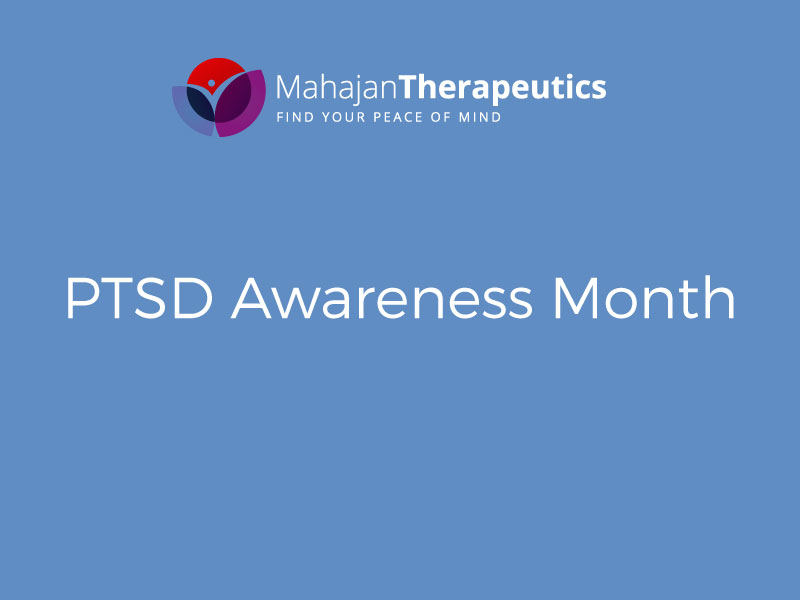June is PTSD Awareness Month
The month of June is dedicated to post-traumatic stress disorder awareness. This national recognition aims to eliminate the stigma surrounding PTSD and encourage those who struggle with PTSD to receive the treatment they deserve.
What is PTSD?
Post-traumatic stress disorder (PTSD) arises after a traumatic experience changes how our bodies react to stress, according to the National Institute of Mental Health (NIH). This can occur after a singular experience or consistent distress. PTSD differs from short-term stress and is diagnosed after one is impacted longer than a month’s time. While PTSD symptoms vary, they can include intense guilt, nightmares, avoidance, intrusive thoughts, insomnia, flashbacks, and reactive episodes of anger or agitation. In addition to this, PTSD indicators may include difficulty concentrating, self-destructive behaviors (such as gambling or substance use), emotional numbing, and feelings of hopelessness. PTSD subtypes vary, and their distinction allows for targeted therapies.
Types of PTSD
Uncomplicated PTSD
Uncomplicated PTSD is tied to a singular traumatic event rather than several occurrences of trauma. Symptoms include avoidance of distressing reminders, nightmares, flashbacks, anger, mood changes, and changes to interpersonal relationships. Treatment of uncomplicated PTSD includes cognitive behavioral therapy, EMDR, and medication.
Complex PTSD (C-PTSD)
Complex PTSD (C-PTSD) differs from uncomplicated PTSD, in that it occurs after a series of traumatic events. Such incidents include domestic violence, sexual abuse, neglect, war, community violence, and ongoing traumatic grief. Symptoms of C-PTSD include changes in emotional regulation, detachment from one’s surroundings, depersonalization, intense feelings of shame, distortion of abuse, hyper-sexualization, impulsivity, and intense rage or fear. Complex PTSD treatment often requires intensive therapies and medication. EMDR has been found to be highly supportive of those with C-PTSD.
Dissociative PTSD
Dissociative PTSD is a relatively new diagnosis, first appearing in the DSM-5 in 2013. This subtype of PTSD is often seen in those who experienced trauma at a young age, who subsequently exhibit symptoms of depersonalization, where they (or their surroundings) do not feel real. While traditional PTSD produces a panic response, including increased heart rate, those with the dissociative subtype experience the opposite and tend to retreat to feel safe. Treatment for Dissociative PTSD includes EMDR therapies, medication, and individualized therapy.
Comorbid PTSD
Comorbid PTSD co-occurs with other psychiatric and physical health problems. These may include mental health struggles, substance use, or physical health trauma. Comorbid PTSD is common, occurring in 80% of those with PTSD. Because of this, it is especially relevant to substance use disorders, as those suffering with PTSD often engage in self-medication in an attempt to elevate their symptoms. Through understanding PTSD and addiction, therapies target individual needs that align with uncomplicated and complex PTSD while including a treatment plan mindful of comorbid risks.
We Can Help
Mahajan Therapeutics is dedicated to helping those suffering from the symptoms of all forms of post-traumatic stress disorder. Our holistic treatment therapies allow us to provide incomparable care to the distinctive subtypes of PTSD.
We’re here for you. You don’t have to suffer alone.





Recent Comments